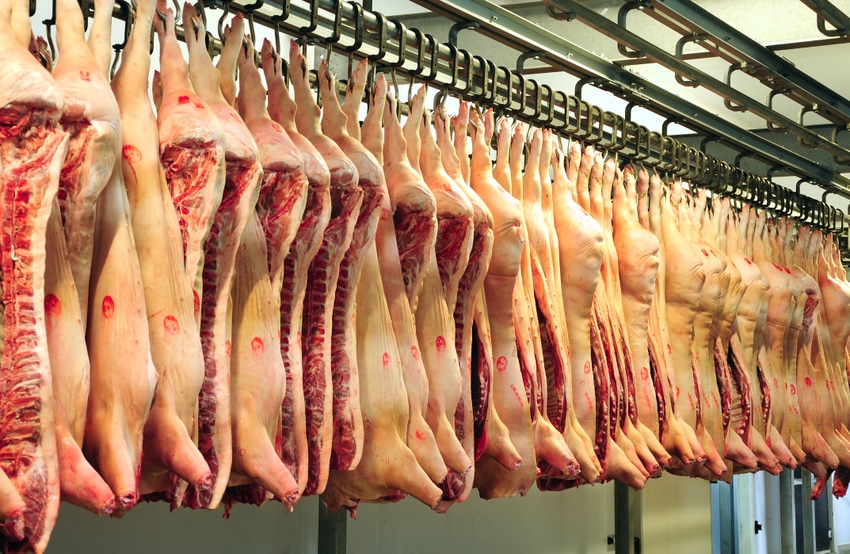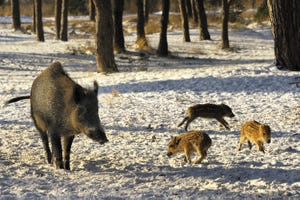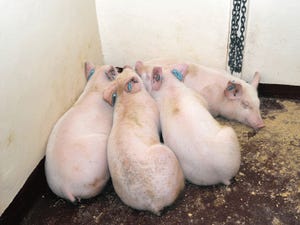Court ruling will hurt Iowa pig farmers
Court order will reduce plant capacity by as much as 25% at six plants.
June 4, 2021

The past few years have been incredibly difficult for hog farmers like me. For more than two years, we lost pork sales in many global markets due to trade retaliation that limited our ability to compete effectively around the globe. Then, 2020 brought the COVID-19 pandemic that unleashed unprecedented challenges for the entire food supply chain. Now, just as we are finally returning to normal, another challenge is rearing its head.
A recent federal court decision—which takes effect on June 29—struck down a provision of USDA’s New Swine Inspection System (NSIS) allowing for faster harvest facility line speeds. NSIS, initiated during the Clinton administration and evaluated at five pilot plants over 20 years, was approved for industry-wide adoption in 2019. NSIS modernized an inspection system that had remained unchanged for more than 50 years.
At a time when the United States is seeking to increase much-needed pork harvest capacity, the court order will reduce plant capacity by as much as 25% at six plants running at NSIS line speeds. The five original plants, which have been running at NSIS line speeds over the life of the program, have been safely operating for more than 20 years.
NSIS has no partisan history, and its legal challenge was based on an alleged omission about procedures. The ruling was not made due to evidence of a threat to worker safety.
Iowa Sen. Chuck Grassley (R), along with Reps. Dusty Johnson (R-S.D.) and Jim Hagedorn (R-Minn.), are spearheading two letters to the U.S. Departments of Agriculture and Justice, urging the administration to appeal the ruling that, left unchallenged, will cause tremendous financial harm to hog farmers across the country.
I market my hogs to two of the six affected plants, and many other Iowa farmers are in a similar situation. We need more lawmakers to join the growing calls for the administration to quickly intervene.
The court’s action reducing the line speeds in these facilities will reduce pork packing plant capacity nationwide for pig farmers like me. We carefully time all stages of raising pigs during the 10-month lifecycle so we can provide an uninterrupted supply of pork to consumers. It’s not a spigot that can be turned on or off in an instant.
As the country’s largest pork-producing state, the court ruling will affect Iowa’s more than 5,400 hog farms, and trickle down throughout the entire economic sector. In 2020, Iowa’s hog industry provided nearly 150,000 jobs, added $11.9 billion in value-added activity to the state’s economy, and $6.8 billion in household income. All this could be in jeopardy if this damaging court ruling stands.
When the line speeds slow down, plants will have more pigs at their gate than they can move through the plant at that time. With more pigs on the market than can be processed, packers can offer lower cash prices for the oversupply. Iowa State University Economist Dr. Dermot Hayes says the impact will reduce income for our nation’s pig farmers by $82.3 million this year.
The stroke of that judge’s pen hurts hog farmers because it adds another economic dent in our businesses after several challenging years. If left in place, the ruling could drive industry consolidation and concentrate more power in the hands of pork processors. It also reduces pork’s competitiveness in the meat case because the cost to consumers is likely to increase.
We need the administration to urgently appeal and stay the court’s decision. This will help preserve our highly competitive pork production system and the significant economic benefits it provides to our communities around the country.
Source: Trent Thiele, KMAX Farms, who is solely responsible for the information provided, and wholly owns the information. Informa Business Media and all its subsidiaries are not responsible for any of the content contained in this information asset.
You May Also Like



